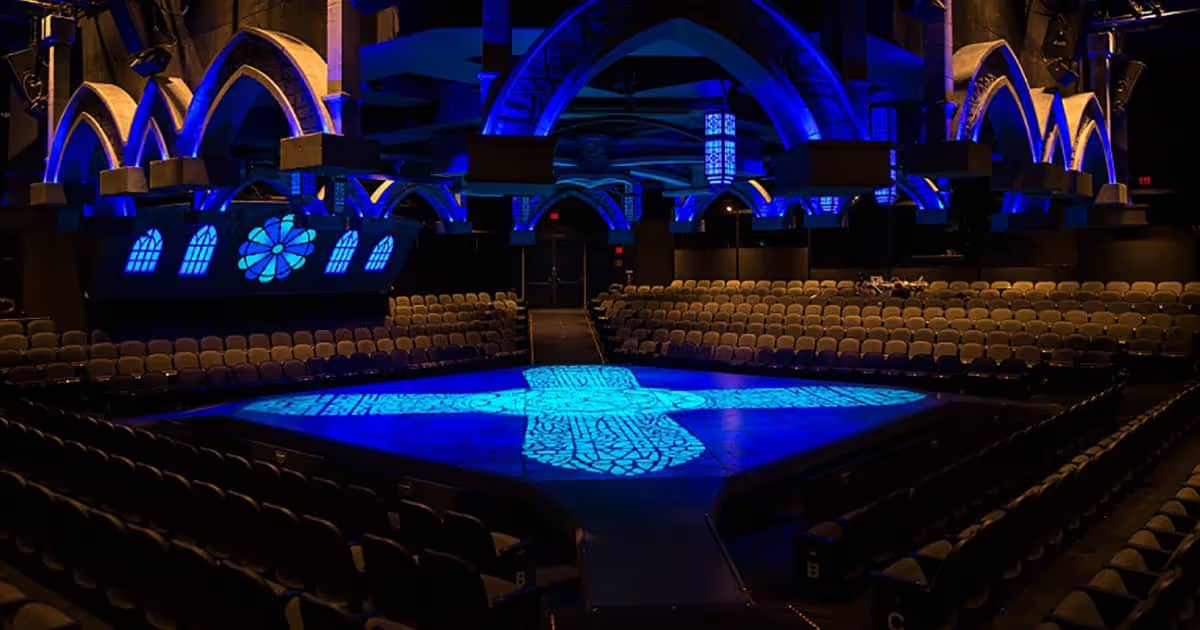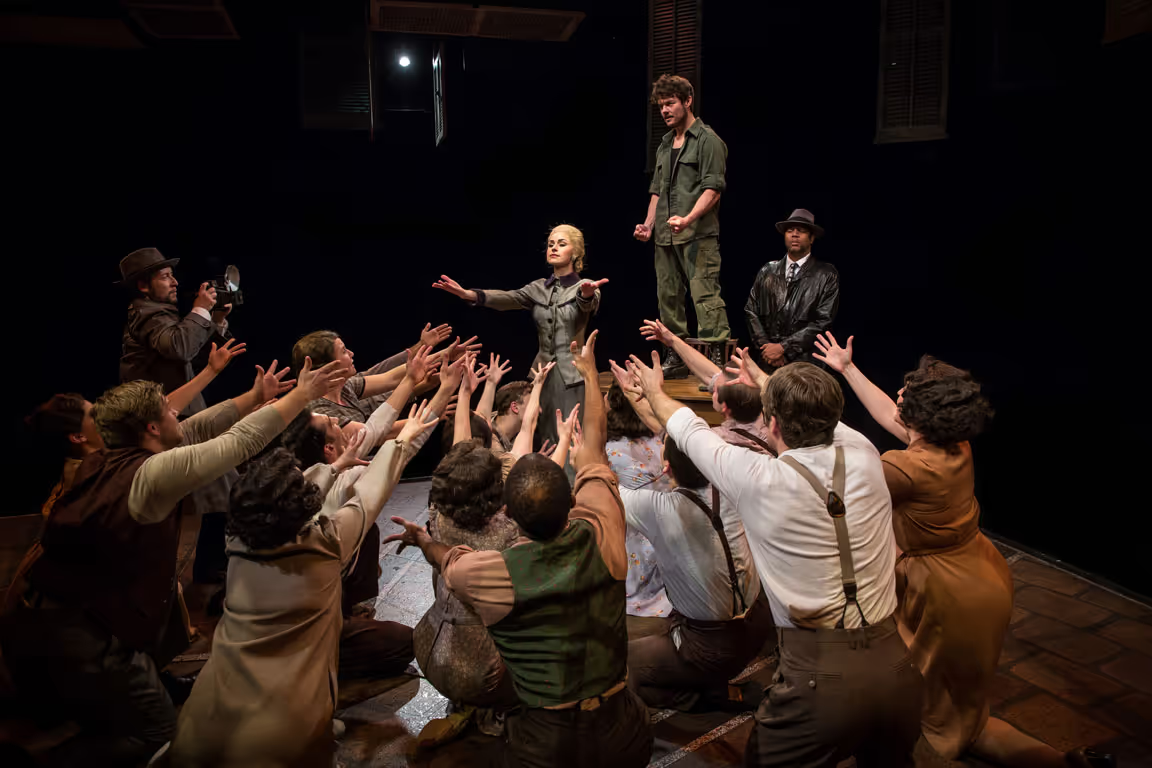Choreography and narration interpret politics and ambition in 'Evita'
Theater goers likely look forward to another production of “Evita, Andrew Lloyd Webber and Tim Rice’s 1976 ballad on the short life of Eva Perón, to hear the stirring “Don’t Cry for Me Argentina.”
At the Marriott Theatre where the show is currently running through June 5, 2016, Hannah Corneau the primary Eva, doesn’t disappoint. (Some performances Eva is portrayed by Samantha Pauly whom this writer hasn’t heard in the role.)
However, the show, less a typical musical than an operetta (it was originally written as a rock opera), is really about where Eva fits into the interplay of Argentine politics with the needs of the populace, the economy, views of different classes, the military and leaders grappling for power. She is seen as a saint by some people and a manipulator by others.
Those issues are well portrayed in the choreography by Alex Sanchez who also is show’s director. Many of the movements are inspired by the tango and pasodoble (double step). Others portray political and power struggles.
But the issues and Argentinean history are not merely left to chance understanding. Che, perfectly interpreted by Austin Lesch, is a narrator and commentator who delights in pointing out that Eva was ambitious and the economy didn’t flourish when she was First Lady.
Che reminds everyone that Evita is about a young girl who plots her moves from a poor peasant background to a Buenos Aires actress to Juan Peron's mistress and then First Lady. And that she is a First Lady who’s adored by the people, looked down on by the country’s upper class and disliked by the military.
The fine voices of Larry Adams as Perón and David Schlumpf as Argentine entertainer Magaldi plus those in the ensemble, are important contributing elements to Evita as an operetta. And yes, the dialogue is sung.











